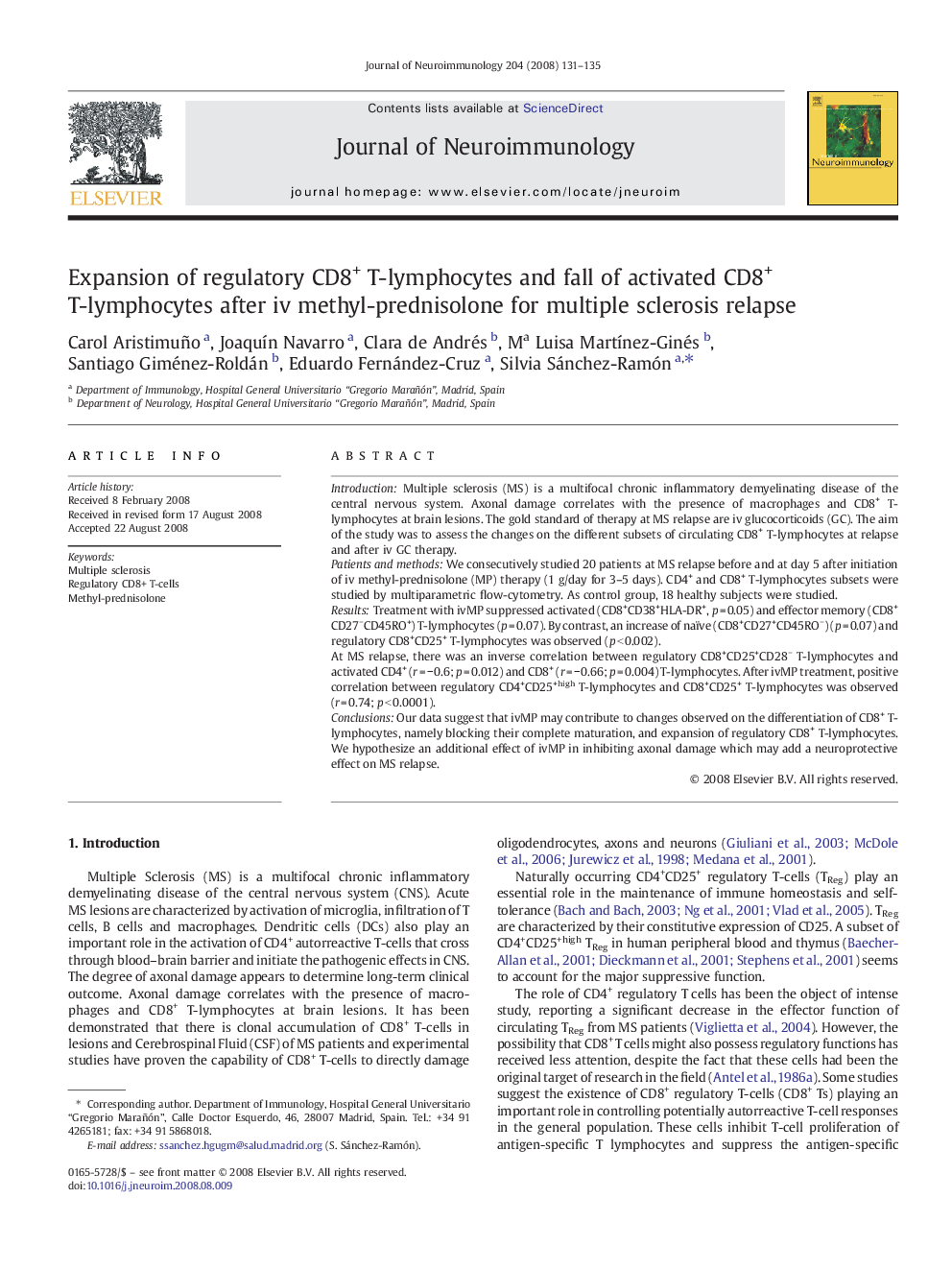| Article ID | Journal | Published Year | Pages | File Type |
|---|---|---|---|---|
| 3064934 | Journal of Neuroimmunology | 2008 | 5 Pages |
IntroductionMultiple sclerosis (MS) is a multifocal chronic inflammatory demyelinating disease of the central nervous system. Axonal damage correlates with the presence of macrophages and CD8+ T-lymphocytes at brain lesions. The gold standard of therapy at MS relapse are iv glucocorticoids (GC). The aim of the study was to assess the changes on the different subsets of circulating CD8+ T-lymphocytes at relapse and after iv GC therapy.Patients and methodsWe consecutively studied 20 patients at MS relapse before and at day 5 after initiation of iv methyl-prednisolone (MP) therapy (1 g/day for 3–5 days). CD4+ and CD8+ T-lymphocytes subsets were studied by multiparametric flow-cytometry. As control group, 18 healthy subjects were studied.ResultsTreatment with ivMP suppressed activated (CD8+CD38+HLA-DR+, p = 0.05) and effector memory (CD8+CD27−CD45RO+) T-lymphocytes (p = 0.07). By contrast, an increase of naïve (CD8+CD27+CD45RO−) (p = 0.07) and regulatory CD8+CD25+ T-lymphocytes was observed (p < 0.002).At MS relapse, there was an inverse correlation between regulatory CD8+CD25+CD28− T-lymphocytes and activated CD4+ (r = − 0.6; p = 0.012) and CD8+ (r = − 0.66; p = 0.004) T-lymphocytes. After ivMP treatment, positive correlation between regulatory CD4+CD25+high T-lymphocytes and CD8+CD25+ T-lymphocytes was observed (r = 0.74; p < 0.0001).ConclusionsOur data suggest that ivMP may contribute to changes observed on the differentiation of CD8+ T-lymphocytes, namely blocking their complete maturation, and expansion of regulatory CD8+ T-lymphocytes. We hypothesize an additional effect of ivMP in inhibiting axonal damage which may add a neuroprotective effect on MS relapse.
